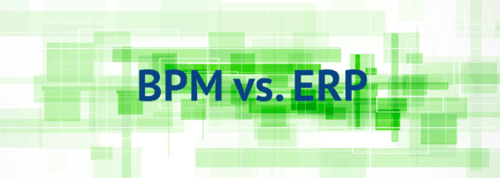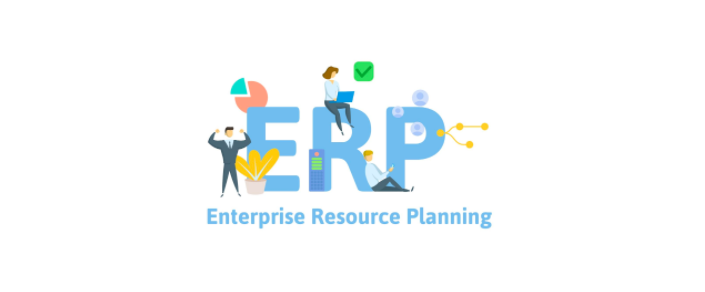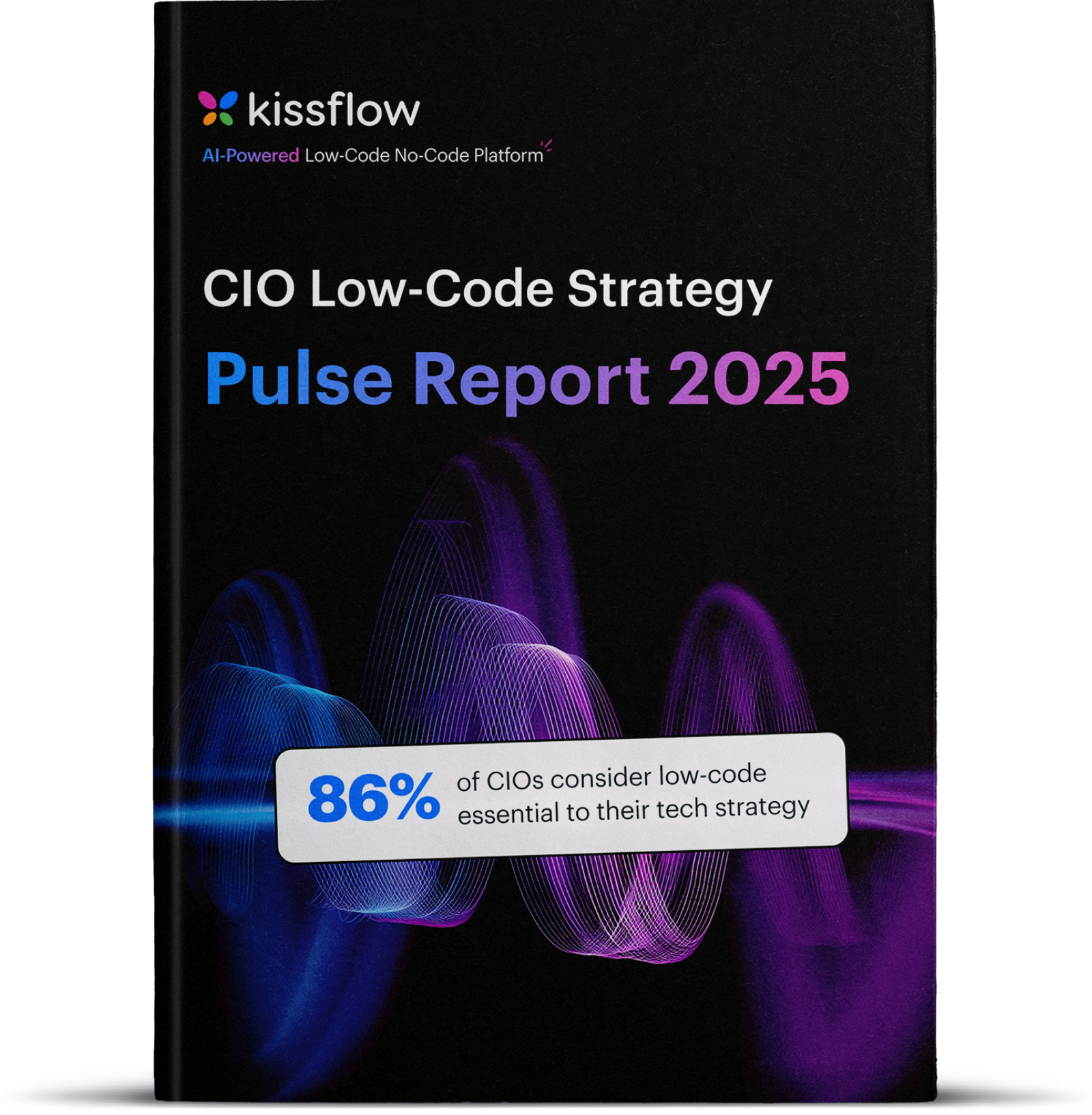
- >
- BPM Software >
- BPM vs. ERP: Which one do you need for your business?
BPM vs. ERP: Which one do you need for your business?
The choice between ERP and BPM tools can be quite tricky for companies because both solutions cut across what your business needs to succeed.
While both help deliver work faster and more efficiently, they’re quite different in what they offer. Learn more about BPM, ERP, and which to leverage to generate better results for your business.
What is BPM?
Business process management is the art of creating, organizing, and automating repeatable business processes, in order to drive better results predictably and faster. Business process management focuses on:
- defining the repeated actions carried out in an organization
- organizing those actions sequentially into blocks of work known as workflows, and
- automating those workflows so they can run with minimal human input
The last point is the ultimate aim of BPM—to organize and automate repeatable tasks so organizations can deliver better results, with less hitches, and faster.
Why do companies use BPM?
Business process management comes in handy in organizations where work is designed around processes with clearly defined workflow, or rather where a repeatable number of steps are required to get a specific result time and again.
Speed
An accurately designed process can interpret information and get work done faster than files and memos can be sent across teams.
Accuracy
BPM guarantees that every step defined in a process will inevitably be carried out at the right stage instead of relying on different staff members to remember to do it the same.
Resource efficiency
BPM helps forward-thinking companies drive results with a negligible margin of error. In fact, the only error BPM can accommodate is human error that was encoded, either in the data or the process.
Overall, BPM offers a relatively easy avenue for leveraging the power of tech to drive faster results, deliver success predictably, and avoid human error entirely.
What is ERP?

An Enterprise Resource Planning tool (ERP) is a central database that feeds staff from across the organization with the information they need to get their work done. It’s an integrated data center designed to manage both internal and external resources in a business.
An ERP effectively functions as a high-level data store that the entire organization is connected to, helping to:
- offer a central source of truth for all the organization’s data
- eliminate the need for multiple data entry since all the data anyone needs flows to wherever it’s needed from the central database, and
- unite the organization’s work right in one place
An ERP takes data from the center and brings it right where it’s needed, as well as helping team members interact with their tools so they can get work done faster and with greater clarity.
Why do companies use ERP?
Speed
ERP serves as a multipoint high-powered database that manages data across numerous points, processes it quickly, and updates the center so everyone across the organization can stay on the same page with minimal or no lag at all.
Increased productivity
In larger organizations where there’s an increased need for data transparency, it’s not just tiring but simply impossible trying to keep everyone on the same page with never-ending email threads, updates, etc. Here’s where an ERP comes in. It takes all the volumes of data generated by the entire organization, processes it, and assigns it a place in the database—in seconds. This way, staff are free to do much more demanding and productive work instead of spending time wrangling through sheets and graphs.
Data transparency
Another huge advantage of the ERP framework is data transparency. ERP makes sure that data in the central database is available to everyone at every point in time. Further, if anything changes, all relevant staff get instant updates that help them see what’s happening and how to adapt.
Can you use both ERP and BPM?
While ERP and BPM seem like two opposing solutions to your organization’s needs, that might not actually be the case. Your organization might need a solution that cuts across what ERP and BPM offer, such as the need to organize work in processes, while keeping the entire team up-to-date on the internal flow of data.
To achieve that you will need to intelligently fit a BPM solution alongside an ERP tool.
You can maintain balance and actually hit your business goals without sacrificing function, speed, or capability.
Which is right for your business?
On one hand, BPM works great for companies looking to automate and scale repeatable processes; on the other hand, ERP does a great job of managing massive data coherently into one authentic source of truth.
So, which do you choose? How do you determine which solution will work best for your business? Here are a few tips to help you determine whether your company needs a BPM or an ERP solution.
First of all, it’s pertinent to understand that BPM is designed to assist serial work. If your company:
- works with a collection of repeatable processes
- gets work done serially
- employs several steps that require specific staff to complete them in a sequence
then BPM would typically be the best option for your organization.
BPM empowers organizations to do complicated work with accuracy by:
- breaking it down into steps
- following the process serially, and
- reverting for changes until the desired result is delivered.
On the other hand, if your business:
- has a larger pool of data
- gets data pulled randomly by staff across several departments
- requires higher data transparency for staff to do their best work, and
- has to manage complex volumes of data interacting with each other across the organization, you will find that ERP would meet your organization’s needs quite suitably.
ERP is suited to the needs of larger organizations where data is randomly utilized and there’s a need to maintain a singular, up-to-date source of truth across the entire organization.
Most large organizations use both BPM and ERP. The ERP system handles all the database requirements, and the BPM system handles the flow of data between the ERP system and other essential tools.
As your organization grows, both of these systems will become important, so putting them into place early helps your team be used to taking advantage of the best technology to scale your business.
Try Kissflow BPM, now!
Frequently asked questions
1. Why do CIOs treat BPM and ERP as complementary layers?
ERP manages core data and transactions, while BPM orchestrates the process flow around them.
BPM ensures ERP-driven work happens efficiently across teams and approvals.
2. When does BPM become necessary even with ERP in place?
When workflows span departments, require approvals, or need exceptions handled consistently.
ERP alone doesn’t manage end-to-end routing or optimization.
3. How does BPM reduce ERP-related bottlenecks?
It automates approvals, validations, and handoffs before/after ERP steps.
This removes the manual coordination that slows ERP-based operations.
4. What risks happen if enterprises rely only on ERP workflows?
Teams build email/spreadsheet workarounds outside ERP.
This creates data gaps, compliance blind spots, and process inconsistency.
5. How does BPM support ERP modernization programs?
BPM can sit above legacy ERP to digitize workflows incrementally.
Modernization happens without expensive full replacements.
6. How should CIOs align BPM and ERP governance?
Define shared rules, data standards, and integration checkpoints.
This keeps processes consistent across systems.








